For more than 20 years, LOOMIS has sounded the clarion call for challenger brands across the country. We’ve dedicated our agency and our careers to helping smaller brands punch above their weight and enjoy greater success than their size and station suggests they should. In a few weeks, we’re publishing a book about challenger branding and the role culture plays in building great companies. This is the world we’ve been living in for two decades.
It’s with that background that we offer these seven trends we think you’ll see emerge in advertising and marketing in the next five years:
Everyone will be forced to think like a challenger.
Whether the economy comes roaring back or takes years to return to where it was pre-pandemic, we’ve seen the dark side of what happens without customers and it doesn’t work for anyone. True challengers don’t follow convention. Instead, they expose the weakness of category norms with alternatives that often appear obvious with the perfect vision of hindsight.
Under normal conditions, challengers zig while others zag and generally wreak havoc on competitors by showing up in a way that’s anything but expected. On the other side of COVID-19, every brand will have the opportunity to show up in a fresh, unexpected way. Those who want to survive won’t have a choice.
There will be less red tape to fight through (and fewer excuses).
In a time when Congress can deliver billions in aid in a matter of weeks, car factories can transform themselves into ventilator producers seemingly overnight, and medical companies can manufacture millions of COVID-19 tests in a matter of days, agencies are going to have to adopt the mindset of finding a way where there is no way and doing it quickly.
If you’re already a challenger brand, you’re used to that. Throughout the pandemic, we’ve seen how quickly we can move, how agile and collaborative we can be and that making quick decisions and adjusting rather than taking the longer, safer route can actually be a good thing. On the other side of the coronavirus crisis, there will be little patience for excuses with clients or, frankly, with each other. Embrace your inner challenger and find a way.
More employees will work at least a franction of their week from home.
I don’t know why encouraging people to spend regular intervals working from home has caused so much consternation in the past, but whatever the reasons were, we now see the concerns may have been overblown. Don’t get me wrong. There’s no substitute for the cultural and personal connections we make by physically being in the same space and spending time with each other at the office. But we’ve gotten a good look at what it looks like for ALL of us to work from home and some people prefer it. Every company will have to figure out what works for them.







